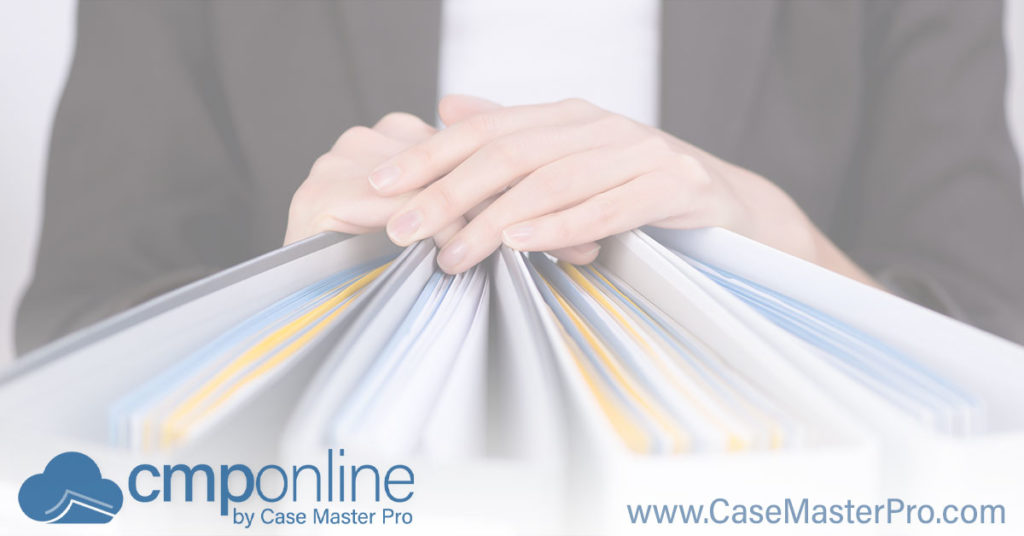
Managing a robust portfolio of outstanding debts can be daunting for any attorney. For attorneys managing multiple collections, efficiency is paramount to success. This intricate process requires not only an understanding of the legal landscape but also strategic intuition and organizational prowess. In this blog, we will delve into the role collection attorneys play, their navigation through fair debt collection practices, and effective management strategies that keep them ahead in this challenging field.
The use of advanced technology stands out as a game-changer for law firms juggling numerous cases, allowing lawyers to maximize recoveries while remaining compliant with federal laws. Attorneys who master leveraging their chosen technology further enhance their ability to collect unpaid debts without litigation—a valuable skill set for any business legal professional dealing with commercial debt recovery.
The Role of Collection Attorneys in Debt Recovery
When businesses face the challenge of unpaid debts, collection attorneys step in as specialized legal professionals dedicated to managing debt collections. They serve a crucial role for creditors and small business owners who seek to recover money owed without damaging client relationships.
What is a Collection Attorney?
A collection attorney is more than just a lawyer—they are strategic partners for commercial entities grappling with outstanding bills. These attorneys use their expertise not only in law but also in negotiation and finance, helping clients understand the complexities involved with recovering funds. By employing legal strategies tailored to each case’s unique circumstances, these lawyers work tirelessly behind the scenes.
Their approach often involves diving into financial records or conducting thorough investigations into debtor assets, such as bank accounts and credit card usage patterns. This diligence ensures that when it comes time to collect debt, every possible avenue has been explored.
Legal Strategies for Debt Recovery
In situations where polite reminders have failed and collection attempts remain unheeded, litigation can become an inevitable pathway led by your trusted debt collection lawyer. It’s essential here that any action taken complies strictly with fair debt collection practices—federal laws put forth by statutes like the Fair Debt Collection Practices Act (FDCPA), which forbids tactics like harassment or misrepresentation during collections efforts.
An adept collections attorney knows how to navigate these rules while still effectively collecting what’s due through court orders or other lawful means—which might include securing payment directly from debtor’s wages or attaching liens on property until debts are settled.
Understanding limitations imposed by FDCPA is paramount because crossing these boundaries could jeopardize both recovery prospects and professional reputations.
Negotiation Tactics in Collections
To avoid courtroom battles, which consume valuable time and resources, an experienced collections attorney will first exhaust all avenues of negotiation. Their deep understanding of human psychology paired with expert communication skills allows them to secure prompt payments through settlement discussions alone—a feat that requires balancing firmness with diplomacy so delicate, client relations stay intact throughout this process.
Prioritization Based on Case Merits
Each file represents someone’s hard-earned cash slipping away. Thus prioritizing cases becomes critical within busy law firms dealing simultaneously with numerous claims against delinquent accounts.
With precise attention paid towards assessing each scenario based on factors such as total amount owed versus likelihood of successful recovery, or potential value from initiating legal proceedings, their decisions help ensure maximum returns for their clientele.
Effective management doesn’t stop at deciding which cases to prioritize. It extends into every aspect of the process, ensuring that each decision is executed with precision and care. To stay on top, managers need to be proactive, adaptable, and always looking for ways to improve efficiency.
Key Takeaway:
Collection attorneys are the muscle behind getting your unpaid debts sorted. They’re not just lawyers. They’re strategic allies who know the law, negotiation, and finance inside out. They dive deep into financial details to make sure no stone is left unturned in debt recovery.
Lawsuits are a last resort for these pros. First, they try every trick in the book to get that money back without stepping into court—think clever chats over tough tactics. And when it comes down to crunch time? They pick which cases have got the best ROI.
Effective Management of Multiple Collections Cases

Attorneys juggling numerous collections cases need strategies that streamline their workload while ensuring they remain compliant with laws and maximize recoveries. This balancing act requires a keen understanding of client files, case merits, and efficient negotiation tactics.
Organizing Client Files for Maximum Efficiency
To handle multiple collections effectively, attorneys must maintain meticulously organized records. By doing so, they can quickly access relevant information when needed. An attorney managing multiple collections might use advanced software with reporting ability to categorize each client file by urgency or potential value.
This level of organization allows the attorney to update clients promptly on their cases’ status and ensures no detail is overlooked during the collection process. Efficient record-keeping saves valuable time which would otherwise be spent searching through disorganized paperwork—a common pitfall in busy law firms.
An organized approach not only helps lawyers keep track but also sets clear expectations for business owners awaiting payment from debtors. It gives them confidence that their legal counsel is attentive and proactive in recovering unpaid debts.
Prioritization Based on Case Merits
The next step involves assessing each case’s recovery likelihood to prioritize efforts accordingly—some debts may simply be more collectible than others due to factors like debtor solvency or dispute validity. When an attorney identifies these high-potential cases early on, they can allocate resources where there’s a higher chance for success without wasting effort on less promising ones.
A sound prioritization strategy lets attorneys advise small business owners realistically about what they can expect from the collection attempts—an important part of managing client expectations while trying to secure payment for services rendered or products delivered that have gone unpaid.
Negotiation Tactics in Collections
Negotiation skills are crucial when dealing with debtors who might not respond well to aggressive collection practices. A good lawyer knows how effective billing schedules coupled with flexible terms can lead to prompt payments without needing harsh enforcement measures such as seizing bank accounts or taking legal action against consumers behind on credit card bills or other outstanding debts. Some good techniques include:
- Leverage existing relationships: Building rapport often leads to better cooperation from debtors who feel understood rather than threatened.
- Demonstrate empathy yet firmness: Balancing understanding with the necessity of collecting owed money shows respect but underscores seriousness.
- Create win-win scenarios: Proposing solutions beneficial to both sides could encourage quicker resolution over contested amounts.
Key Takeaway:
Streamline your workload and boost debt recovery by staying organized, prioritizing cases based on their merits, and using smart negotiation tactics. Keep client files neat for quick access, focus on the most promising debts first, and strike a balance between empathy and firmness to settle accounts effectively.
Team Collaboration and Delegation

When it comes to managing multiple debt collection cases, teamwork isn’t just helpful, it’s essential. By splitting tasks among paralegals, junior attorneys, and administrative staff, you can handle a higher volume of work without sacrificing quality or efficiency.
Defining Roles and Responsibilities
In every legal team, ensuring clarity is crucial. It’s important that each member understands their role in the collections process. Beginning with onboarding procedures managed by the administration team, and extending to legal assistants issuing initial demand letters to initiate negotiations, every individual plays a vital part. Specialists involved in pre-suit and post-suit stages, along with paralegals handling post-judgment tasks, are essential components of the well-coordinated machinery managing the debt collection process from inception to resolution.
This division of labor lets each team member use their strengths where they matter most. With clear responsibilities outlined using tools like Case Master Pro, your firm can avoid duplicating efforts and keep things moving smoothly.
Implementing Effective Communication Systems
To ensure that no case falls through the cracks, establish robust channels for internal communication. Use platforms that allow real-time updates so every team member stays informed about case progressions or changes in strategy.
Shared case activity and diary or tickler systems integrated within your practice management software could be pivotal here—allowing all members to see information at a glance ensures nothing gets missed when juggling multiple cases.
Fostering Continuous Improvement Through Feedback Loops
Create an environment where feedback flows freely among all levels of your legal team—not only does this help fix immediate issues but it also drives continuous improvement over time. Regular debriefings after significant milestones give opportunities for staff to learn from experiences as well as offer fresh perspectives which may streamline processes even further.
Maximize case wins with top-notch team play. Divide tasks, define roles, and amp up communication for a seamless debt collection process. #TeamworkMakesTheDreamWork Share on XNegotiation Tactics in Collections
Attorneys skilled in collecting debt understand that negotiation is both an art and a strategy. It’s about striking the right balance to collect unpaid debts without pushing debtors towards unresponsiveness or litigation. For lawyers, this means honing tactics that encourage prompt payment while preserving client relationships.
Understanding Debtor Circumstances
To effectively collect on outstanding bills, attorneys must first get to know the debtor’s financial situation. This insight lets them craft personalized approaches which may include offering flexible repayment options or settling for a lesser amount if it secures payment more swiftly than protracted negotiations would.
Gathering information also allows lawyers to determine whether legal action is necessary or if negotiating can resolve the issue outside of court—often saving valuable time and resources for all parties involved.
Creative Structuring of Repayment Plans
When full immediate repayment isn’t feasible, savvy attorneys work with debtors to develop structured stipulation plans that ensure consistent cash flow back into their clients’ accounts. They might propose incremental payments tied directly to debtor income streams or secure assets as collateral until debts are cleared. Such arrangements show flexibility but also protect business interests by ensuring some form of guaranteed recovery over time.
In these discussions, maintaining open communication lines is critical so both sides feel heard and understood—a key factor in reaching mutually beneficial agreements.
Leveraging Legal Knowledge During Negotiations
A thorough grasp of fair debt collection practices gives collection attorneys an edge when navigating negotiations. They use their understanding of federal laws like the FDCPA—which prohibits harassment and mandates clear disclosure—to build trust with debtors by reassuring them that they’re working within legally acceptable boundaries during collections efforts.
The outcome? A balanced approach where resolutions favor everyone. Creditors recover funds owed while avoiding reputational damage often associated with aggressive collection attempts. Meanwhile, consumers are treated fairly under legal guidelines. An outcome benefiting all parties involved.
Key Takeaway:
Mastering negotiation is key for attorneys in debt collection. They’ve got to balance getting the cash back without driving folks away or into court.
To collect debts smartly, lawyers need to dig into each debtor’s wallet situation and come up with a game plan that might mean taking less money if it means getting paid quicker.
Creative repayment setups are crucial when full payment upfront isn’t an option—think small payments linked to income or using assets as backup until the bill is settled.
Knowing legal do’s and don’ts gives lawyers an advantage. They reassure debtors they’re playing by the rules, which builds trust and gets everyone on board with a fair deal.
Utilizing Technology in Collections Practice

The intersection of technology and collections practice is revolutionizing how law firms manage their caseloads. With advanced software, attorneys can streamline the often cumbersome process of debt collection, ensuring that each step from initial contact to final payment is efficient and compliant with regulations.
Advanced Software for Efficient Case Management
To effectively collect debts as a business attorney, adopting sophisticated case management systems like CMPOnline can be a game-changer. Such platforms let lawyers keep tabs on multiple cases simultaneously without missing a beat. The key lies in centralization—having all relevant information about debtors, communications history, legal documents, and financial transactions at your fingertips enhances productivity exponentially.
An organized digital dashboard not only saves valuable time but also reduces the margin for error which could lead to compliance issues or oversight of critical case details. This translates into better service delivery because it helps ensure that no aspect of the client’s expectations goes unaddressed during the course of collecting unpaid debts.
Prioritizing Collection Efforts Through Data Analytics
Data analytics working seamlessly with these technologies allows an attorney to work more strategically by identifying patterns in debtor behavior or flagging high-risk accounts early on. Lawyers equipped with such insights can prioritize their efforts toward cases most likely to result in successful recoveries—a vital strategy when managing volumes of commercial collections.
This data-driven approach extends beyond simple prioritization, it aids in crafting personalized communication strategies aimed at securing prompt payment while adhering to fair debt collection practices—an important consideration given federal laws regulating consumer collection activities.
Negotiation Support Tools Enhance Settlement Outcomes
Negotiating settlements requires skillful balance between firmness and flexibility—traits augmented by negotiation support tools integrated within modern legal software solutions. By simulating various settlement scenarios based on historical data analysis and current account status reports provided by these platforms, attorneys are empowered to make informed decisions that favorably resolve outstanding bills without necessarily resorting to litigation—which can save both time and resources for all parties involved.
Additionally, built-in reminders about billing schedules or upcoming court dates help lawyers stay on top of their game. This is key for making sure they capitalize on every chance to maximize cash flow from funds held in various bank accounts. These accounts are tied to clients who have money owed based on agreed terms and conditions from prior engagements. Both parties had initially agreed upon these, setting up clear guidelines that lead to legally binding agreements. As a result, the ultimate resolution reached should satisfy all stakeholders involved with an efficiently delivered outcome.
Key Takeaway:
Embrace tech like Case Master Pro to manage debt collection cases more effectively, keeping all crucial info at your fingertips for better productivity and compliance.
Use negotiation tools in legal software for informed settlement decisions that can avoid costly litigation and enhance cash flow management through timely reminders about billing and court dates.
FAQs: Strategies for Attorneys Handling Multiple Collections
What is the biggest challenge for attorneys managing multiple collection cases?
The biggest challenge is maintaining efficiency while staying compliant with debt collection laws. Organization, prioritization, and negotiation are key to success.
How can collection attorneys improve efficiency across multiple cases?
Attorneys can boost efficiency by organizing client files, prioritizing cases based on merits, leveraging technology, and collaborating effectively with their teams.
Why is negotiation important in debt collection cases?
Skilled negotiation helps attorneys secure payments faster and avoid costly litigation, all while preserving the creditor’s relationship with the debtor.
How does technology support attorneys managing multiple collections?
Advanced legal software streamlines case management, enhances compliance, improves team communication, and increases recovery rates for busy law firms.
conclusion
Managing your caseload smartly is key. Keeping track of every detail matters. And for an attorney, managing multiple collections is the lifeline of their practice.
Remember to navigate carefully through fair debt collection practices. It’s not just about staying legal but also about being ethical. This way, you secure payments while keeping reputations intact—yours and your clients’.
Tech tools? They’re essential allies in this fight against unpaid bills. Embrace them wholeheartedly to streamline workflows and bolster recovery rates.
Negotiation over litigation: always try talking first. It saves time, money, and stress for everyone involved—a win-win situation if ever there was one.
So take these lessons to heart. Work smarter with organization, compliance, technology, and, when needed, the artful deal-making of negotiation. That’s how you thrive in the competitive world of commercial debt recovery.
Ready to take your practice to the next level of Debt Recovery? Case Master Pro offers SaaS-based Debt Collection Software tailored specifically for lawyers like you. With our tools at your disposal, navigating through the debt collection industry becomes easier than ever before. Visit Case Master Pro and request a FREE DEMO today to start transforming how you handle debt collection cases!
